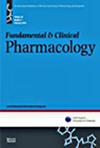Exploring the therapeutic potential of Modafinil in mitigating renal ischemia–reperfusion injury in rats
Abstract
Background
Renal ischemia reperfusion injury (IRI) is a post-ischemic event, which can lead to subsequent acute kidney injury (AKI), transplant failure, renal dysfunction and fibrosis via heightened oxidative stress and production of inflammatory cytokines and chemokines.
Objective
This study aims to assess the effect of Modafinil, a wake-promoting agent with previously proven anti-inflammatory and anti-oxidative properties, on ameliorating renal IRI.
Methods
A total of 30 male Wistar rats were divided into five groups: Sham-operated group, ischemia reperfusion (I/R) control group and Modafinil pre-treated groups (at different doses of 50, 100 and 150 mg/kg). IRI was induced by means of bilaterally clamping the renal arteries for 45 min, followed by 24 h of reperfusion.
Results
Tissue pathological assessments demonstrated a reduction of glomerular, vascular and interstitial injury at doses of 50 and 100 mg/kg of Modafinil. The biochemical studies showed a significant decrease in tissue pro-inflammatory factors, including tumor necrosis factor alpha (TNF-α), Interleukin-18 (IL-18) and lactate dehydrogenase (LDH). Moreover, an elevation was observed in levels of super oxide dismutase (SOD) and catalase, indicating the reduction of oxidative stress. Furthermore, the levels of creatinine (Cr), urea and neutrophil gelatinase-associated lipocalin (NGAL) were declined, indicating the improvement in renal function at effective doses of Modafinil (50 and 100 mg/kg) compared to the I/R control group without Modafinil pre-treatment.
Conclusion
Our findings suggest that Modafinil holds promise as an effective therapeutic agent to address the clinical challenges associated with kidney IRI reducing the need for hospitalization and potentially alleviating related morbidities.

 求助内容:
求助内容: 应助结果提醒方式:
应助结果提醒方式:


